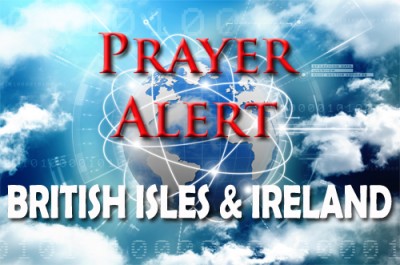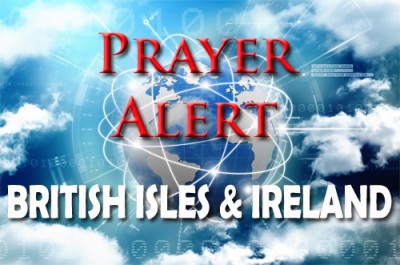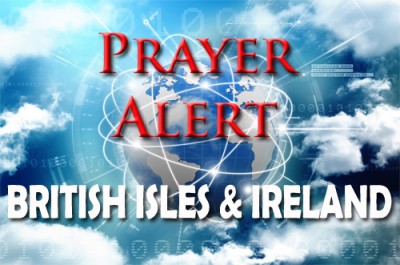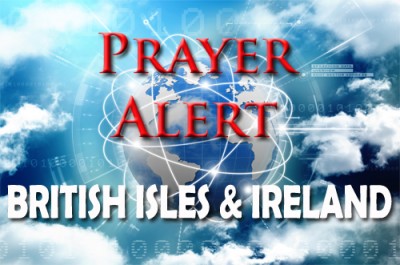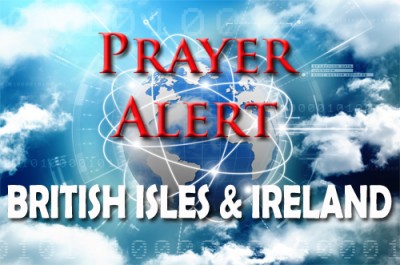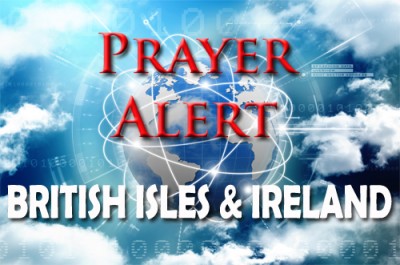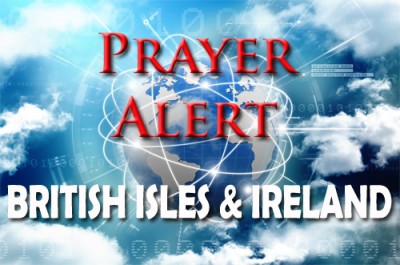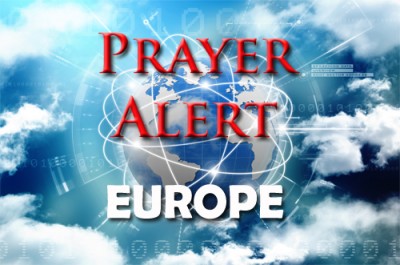Praying for the EU and the referendum
10 Jun 2016Every vote counts. Many are confused about the issues, what to believe, what to think and ultimately how to vote. The starting point is prayer and fasting, to understand God's will. Political and economic issues are important and so is God's call on these Islands and His spiritual purpose for the nations. We are in fast-changing times; God is stirring us to pray for spiritual awakening. Pray for the organisations called to take the gospel across Europe with boldness and confidence to share Jesus with others (Acts 4:29-30). Declare Jesus is Lord over all dominions, powers and authorities (Col. 1:16). Pray for the fear of God to replace fear of man (Rev.14:7). Pray that in all this economic uncertainty, we put our trust in God (Jer.17:7). Pray for campaign leaders to display honesty and integrity (Is. 62:10). Pray also for Liechtenstein, Lithuania, Luxembourg, Monaco, Macedonia, Malta and Moldova. See also:
Converts denied asylum in UK
10 Jun 2016Refugees who converted to Christianity are denied asylum if they can’t prove the authenticity of their Christian faith by answering questions when they attend an interview on arrival. Applications are turned down if the Home Office believes their conversion was a ploy to claim asylum. However, if a refugee has come to faith in an underground house church, where they’ve been able to borrow a New Testament for a week and have encountered the risen Lord Jesus, they are not going to know when the date of Pentecost is or the Catholic rule of abstinence on Fridays. An Iranian convert to Christianity told the BBC that he applied for asylum after fleeing persecution back home, but his application was denied following a failed interview. He was asked to name the last book of the Bible, Revelation, but his correct answer in the Farsi language was misunderstood by the interpreter.
UMC becomes pro-life after 46 years
10 Jun 2016According to PrivateHealthcareReports.com, the United Methodist Church (UMC) has voted 425-268 to reverse their pro-choice stance and to withdraw from the Religious Coalition for Reproductive Choice, which is a lobby group that advocates for abortion rights. Until the reversal, the UMC had been an outspoken pro-choice advocate, supporting on-demand abortion, and even partial birth abortion.
Thirty bishops in mission
10 Jun 2016The Diocese of Blackburn, Lancashire, is preparing to welcome the Archbishop of York, Rt Revd John Sentamu, for his next big mission date, when he and nearly thirty Bishops from across the north of England will come to the diocese for the Crossroads Mission (8 to 11 September). This mission is about sharing the Good News of Jesus Christ with people across Lancashire - and the Archbishop will be leading from the front. Crossroads Mission will involve every parish in the county.
Ban on legal highs starts
10 Jun 2016A law banning ‘legal highs’ came into force on Thursday 26 May, with the Government saying it wants to do everything it can to eradicate this abhorrent trade. Legal highs, also called new psychoactive substances, mimic the effects of cannabis and heroin, and have previously been sold openly on the high street. Now, those involved in the supply or production of the drugs face a prison sentence of up to seven years. However, the police officer in charge of the issue has suggested officers may take a weaker approach. Commander Simon Bray said there are ‘all sorts of options around problem-solving in a proportionate way, so it’s not too heavy-handed on the more social end’. Some say the ban could send the sale of the drugs underground. The Government will continue to take action across education, prevention, treatment and recovery in order to reduce harmful drug use.
Assembly in Belfast
10 Jun 2016This week (ending today) the Presbyterian Church in Ireland has been holding its General Assembly, its governing and decision-making body. 1,000 people from 545 congregations have been involved in three and a half days of worship, prayer, Bible study, celebration and decision-making. Pray for God to bless all decisions prompted by Him and made by the assembly regarding strategic priorities in all-age mission, Church development and Church planting, and all aspects of supporting chaplaincy service in the forces, hospitals, hospices, and prisons. Pray also for its support to mission and ministry in universities and colleges through its chaplaincy services.
Ban on Christian Union 'ludicrous'
10 Jun 2016Prime Minister David Cameron has said it is ‘ludicrous’ that a college Christian Union could be stopped from meeting under the Government's counter-extremism strategy. Responding to Christian Conservative MP Fiona Bruce during Prime Minister's Questions, Mr Cameron said people needed to exercise some common sense in making these judgements. Mrs Bruce raised the issue after reports suggested an unnamed college Christian union had been stopped from meeting because of concerns that it might be breaching Prevent guidelines. This legislation was put together to stop children being influenced by extremists. Prevent is one part of the Government's initiative for countering extremism; it defines extremism, amongst other things, as ‘vocal or active opposition to different faiths and beliefs’. Mrs Bruce said that next week the annual National Parliamentary Prayer Breakfast will host 600 community and faith leaders, as well as over a hundred MPs; yet a Christian Union is banned from holding prayer and Bible study meetings.
Attacks planned on Euro 2016
10 Jun 2016On 4 June Ukraine’s security service said that a French citizen detained in late May on the border with Poland had been planning attacks in France to coincide with the Euro 2016 football championship. The unnamed 25-year-old had been arrested with an arsenal of weapons and explosives including rocket launchers and Kalashnikov assault rifles in his vehicle. Authorities said the man had made contact with armed groups in Ukraine with the aim of buying weapons and explosives. A Paris police raid on his home uncovered ingredients for homemade explosives. The United States warned its citizens of the possibility of further attacks in Europe, saying targets could include Euro 2016 (which opens in France today). Gun attacks, remotely detonated bombs, and even drones carrying explosives and chemical weapons are just a few of the terrorist threats French authorities are preparing for. See also:
